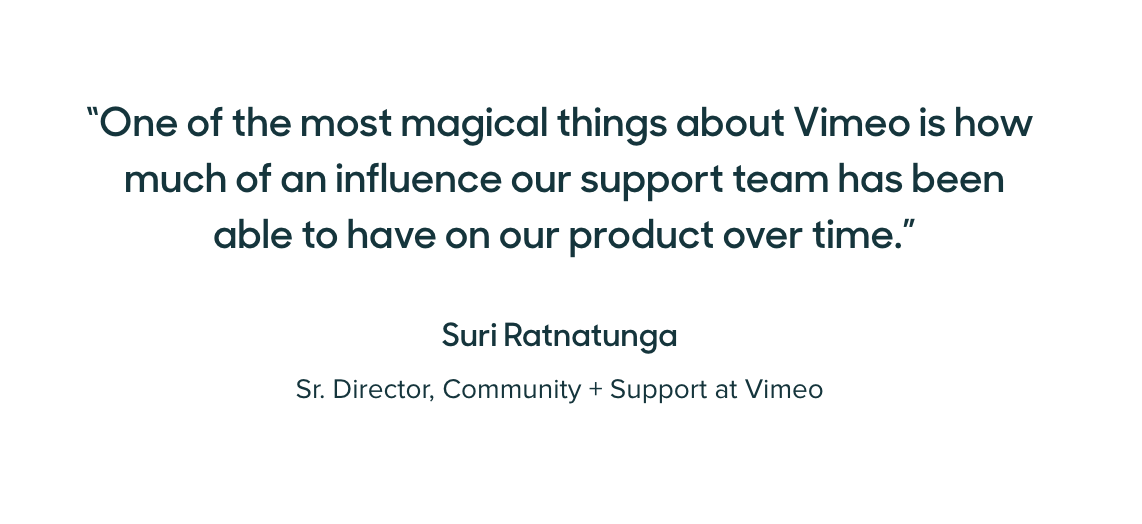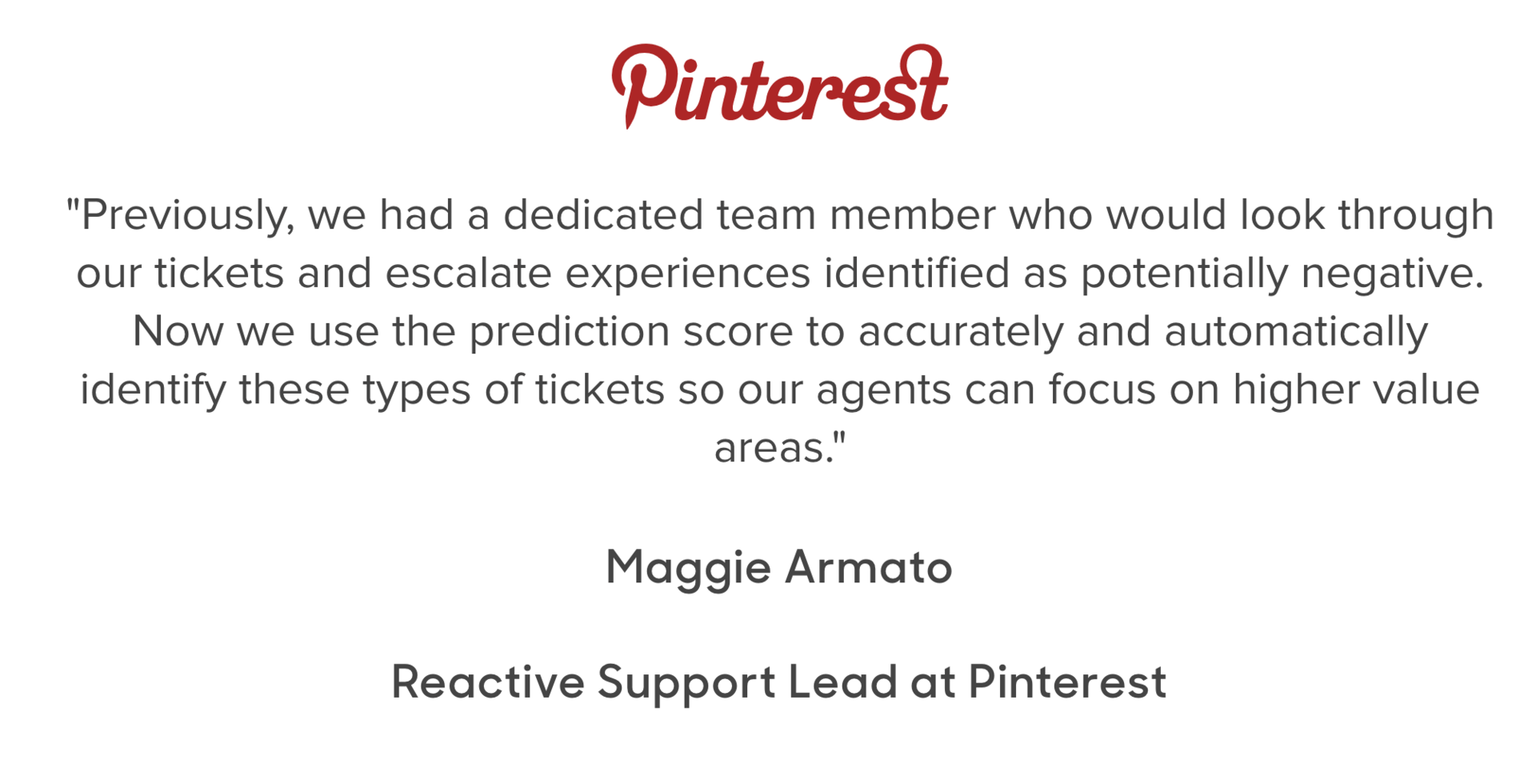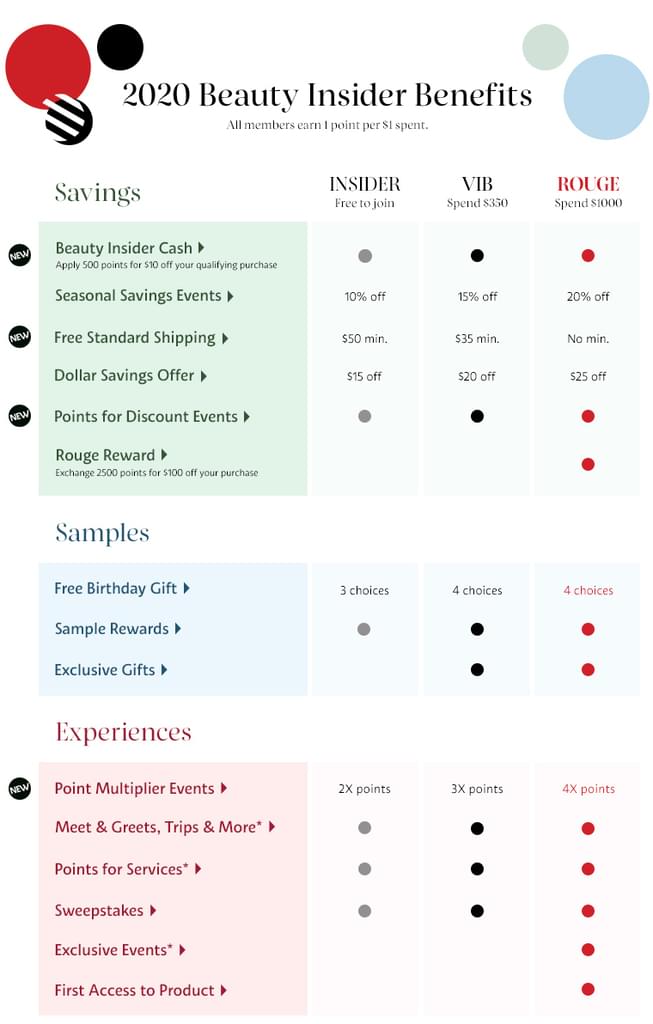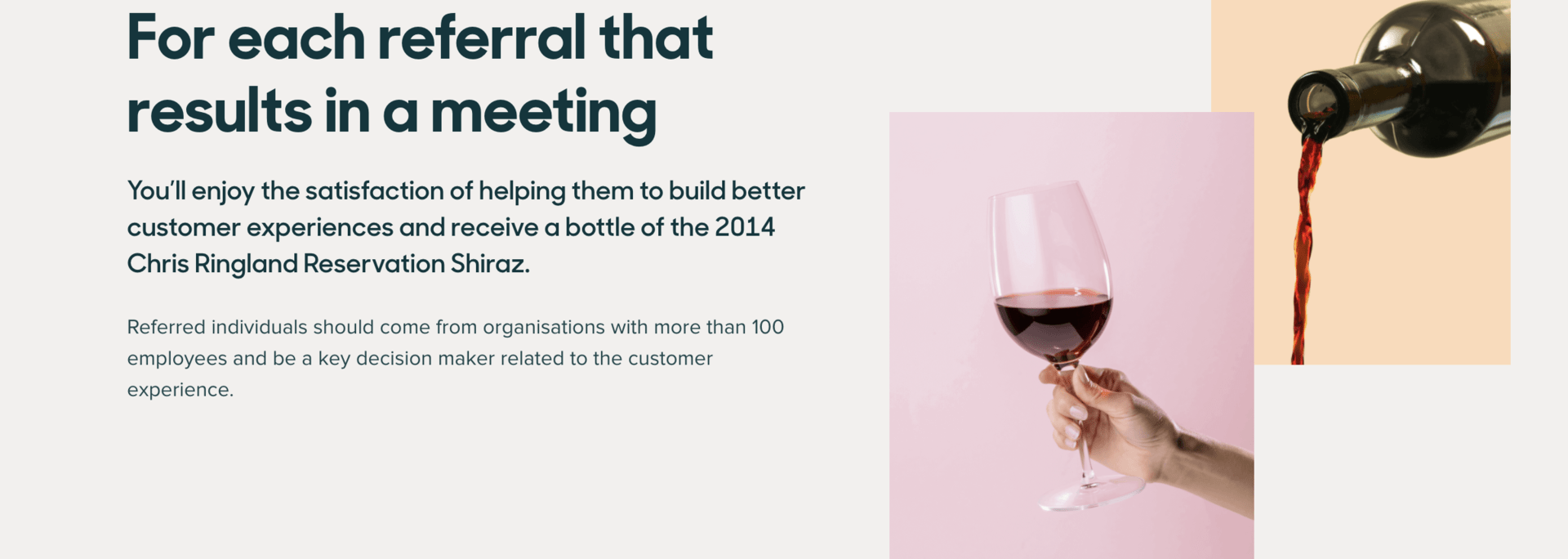Article • 12 min read
12 customer retention strategies you can copy
Customer retention strategies are processes and initiatives that build customer loyalty and improve customer lifetime value. Here are 12 retention strategies you can copy.
출처 Hannah Wren, Content marketing associate
최종 업데이트: April 22, 2024
Businesses tend to think of customer retention as a metric, losing sight of what matters the most: their customers.
It’s true that improving customer retention positively impacts revenue—research by Bain & Company found that increasing customer retention rates by just 5 percent can boost profits by up to 95 percent.
But at its core, customer retention is about building lasting relationships with your customers that make them feel valued.
This requires you to think of your customers as people, as opposed to a percentage, conversion, ticket, or sale.
Fostering the kinds of customer relationships that last through times of prosperity as well as uncertainty starts with building a set of skills and strategies to reduce customer churn and build loyalty.
- What are customer retention strategies?
- Types of customer retention methods
- How to improve customer retention
- 12 customer retention strategies that work
What are customer retention strategies?
Customer retention strategies and customer retention programs are processes and initiatives businesses put in place to build customer loyalty and improve customer lifetime value.
The best customer retention programs don’t just get customers to buy more, they build authentic relationships and turn customers into brand ambassadors.
As Teresa Anania, VP of Global Customer Success and Renewals, Zendesk said: “Our goal shouldn’t be about the customer is buying from us. Our goal should be about them getting value.”
“Our goal shouldn’t be about the customer is buying from us. Our goal should be about them getting value.”Teresa Anania, VP of Global Customer Success and Renewals, Zendesk
Types of customer retention methods
Customer retention isn’t a responsibility that falls on one single team to earn for the entire business. It involves:
The honesty of your marketing campaigns
The transparency of your pricing models
The ease of your sales cycle
The quality of your actual products or services
The speed and convenience of your customer service
Likewise, some types of customer retention programs might fall under marketing while others might involve a good customer service or sales teams. The companies that create the best customer retention strategies understand how each part of the business works together to create a great experience for customers.
If Sally reaches out to return a blender, the company might keep her around by ensuring an agent is easy to reach and shows her empathy. That agent can then note the reason for the return in a CRM so the marketing team can send her an email with a discount for a different blender that better meets her needs. The support team can also share her feedback with the product team so they can make improvements.
How to improve customer retention
Improving customer retention starts with meeting customer expectations. And all year, every year at Zendesk, some of the world’s sharpest analysts are doing research and then painstakingly interpreting it to illuminate the coming year’s biggest trends in customer expectations. Here are a few:
Quick and easy resolutions
Access to preferred service channels
Opportunities to answer questions themselves via help centers
Personalized online experiences
Data protection and privacy
Read our blog to learn more about each trend. We’ll also dive deeper into some of them below.
12 customer retention strategies that work
Businesses often narrowly focus their strategies on growth and what it takes to get a potential customer in the door.
But only investing in customer acquisition and not prioritizing your existing customers doesn’t build loyalty and isn’t budget-smart.
In fact, acquiring a new customer is five to 25 times more expensive than retaining an existing one.
But retaining customers isn’t about luck—it requires teams to use their customer focus, transparency, and empathy skills while being strategic in how they do so.
Here are 12 examples of customer retention strategies to elevate your customer retention game.
1. Implement a Voice of Customer (VoC) program
Customers aren’t likely to stick around if they don’t feel heard.
A VoC program enables you to foster a feedback loop with your customers by making them active participants in your brand.
This involves using insights from your customer service analytics and satisfaction surveys to capture customer feedback.
The next step is to incorporate that feedback across the business.
“VoC programs are an important customer retention strategy because they give customers a seat at the table,” explained Stephanie Lee, Sr. Lifecycle Marketing Manager, Zendesk.
At Vimeo, support team members are looped in before every product launch. They look at designs, anticipate pain points, and voice common feature requests from customers. After launch, the support team shares how customers are receiving the new feature or product, tracking any pain points or issues.

2. Build trust through knowledge and community
According to Zendesk’s Customer Experience Trends Report 2021, customers prefer to help themselves—yet only a third of companies are delivering on customer expectations when it comes to self-service.
Harnessing the power of self-service with a knowledge base builds trust.
It empowers your customers with a one-stop-shop for information they know they can turn to whenever they get stuck. And forums build in peer-to-peer support, fostering brand loyalty through community.
Canva regularly updates its knowledge base with content tailored to where a user is in the customer journey. This includes specific articles where a new customer can find tips for getting started during the onboarding process.
3. Focus on the human touch
A study by Deloitte revealed that emotional connections drive customer loyalty—and even outperform discount incentives like loyalty rewards.
This requires brands to think beyond the kind of “buy five coffees, get one free” loyalty program.
Instead, they need to build real, human relationships.
“Making personal connections with customers that go beyond your actual product is essential to retaining customers,” said Lee. “The most successful retention efforts build interpersonal rather than transactional relationships with your customers.”
Since your agents are on the frontlines interacting with your community of customers directly. They play an important role in fostering human connections with your customers.
Thrive Market trains its agents to become knowledgeable about natural foods because its members value understanding where their food comes from. This enables its customer service team to relate to customers on a more human level.
Agents engage customers in topics customers are passionate about.
As part of Birchbox’s Service Recovery Program, agents follow up with customers who rated an interaction poorly. Zappos sends customers flowers when they need help returning shoes for a loved one they lost.
4. Leverage AI to create proactive experiences
Another important retention strategy is being proactive. 89 percent of companies competing on the basis of customer experience. Reacting to customers’ needs isn’t enough to stand out.
Customer expectations are higher than ever—so much so that customers today expect you to provide them with what they need before they even ask for it.
Technology can help—48 percent of customers are more likely to be loyal to brands that use the latest technology to engage and connect with them.
Ultra Mobile deployed a chatbot on its website to connect customers with the right person, right away, before they bounce. Pinterest’s agents use AI to predict customer satisfaction during support conversations, before a customer takes a survey.

5. Communicate quickly and according to your customers’ channels of choice
Zendesk research found that communicating quickly and according to your customers’ channels of choice is a powerful driver of loyalty.
A great customer experience is an effortless one. Customers increasingly expect your business to meet them wherever they are, whether that’s on your website, mobile app, or social media.
Delivering an effortless experience across channels requires a connective layer of tissue that arms agents with context and conversation history.
If someone has to repeat themselves three different times to three different departments they aren’t likely to become a repeat customer.
Airbnb meets its customers wherever they are across the globe. It does so by providing help through the phone, email, social media, SMS, and social messaging channels.
Airbnb is able to deliver an effortless experience on the front through its sophisticated customer support software on the back that connects channels with the full view of the customer.
Agents have context to effectively help a customer no matter what channel that customer reaches out on. This gives them insight into the urgency of the problem, if a customer is on a trip or if they’re preparing for one, and their history with Airbnb.
Free customer experience guide
Find out how to create great customer experiences that will lead to loyal customers, improved word-of-mouth promotion, and increased revenue.
6. Build a more interactive and engaging customer experience with messaging
The good old days of calling a 1-800 number and waiting on hold are long gone.
In fact, messaging apps earned the highest customer satisfaction score of any channel, with a CSAT of 98 percent, according to our State of Messaging Report.
From Apple Messages for Business and Facebook Messenger to SMS and embedded messaging, messaging provides brands with a fast, convenient, and secure way to interact with customers. It’s rich and interactive capabilities also drive customer engagement.
For example, Samsung Australia created a Twitter chatbot to give customers personalized TV recommendations.
And Four Seasons guests can use SMS, WhatsApp, or chat through the hotel’s mobile app for restaurant recommendations and reservations, room service, notifying the property of late arrival or early checkout, ordering drinks poolside, and even ordering a private jet.

7. Adapt and grow with customers’ changing needs and expectations
Reaserch by Zendesk and ESG revealed that companies that were able to improve customer retention during COVID-19 had processes in place that enabled them to act on customer feedback and quickly use it to optimize operations.
These businesses set themselves up to continuously change both toward things customers want and away from products or services it turns out customers don’t need.
With data transparency driving agility, agile organizations are partly able to stay ahead of the rapidly changing market by paying close attention to their customer data.
In other words, they ensure data is easily accessible—not left in silos—through tools such as a CRM software.
8. Use data to personalize the customer experience
80 percent of customers are more likely to give their business to a brand that delivers a personalized experience.
But to reap the power of personalization, you’ll need to eliminate silos and connect data from across the customer journey.
This involves combining customer data from different sources, such as your customer support software, marketing automation system, or order management tool.
Building a connected ecosystem of customer data opens up possibilities like sending personalized promotions to customers with recently closed tickets. You can also ensure that your support team doesn’t offer a customer a promotion if another team already did.
“Personalization is an important retention strategy. This means delivering the right message, at the right time. You might tailor an email to where a customer is in the customer journey. This is generally a better strategy than sending an email blast across your entire customer base,” said Lee.
Freshly sends recently canceled customers messages tailored to the specific reason they canceled, offering them to reactivate.
9. Invest in a quality CX tech stack
Zendesk and ESG’s findings also revealed that businesses that improved customer retention during the pandemic had the best-of-breed CX tools. High-performing teams prioritize the quality of their tech stack, viewing it as a scalable investment.
The best technology just works—customers don’t have to think about it. When technology doesn’t work it makes things frustrating for customers.
Take customer service software. If the customer has to repeat themselves every time they reach out on a new channel or wait on hold while being transferred between departments because channels and context aren’t connected on the back-end, they aren’t going to remember the experience as a positive one.
10. Give back to causes your customers care about
70 percent of consumers want brands to take a stand on social and political issues.
When brands donate to or advocate for causes their customers care about, they show customers they’re listening and can build more authentic customer relationships.
For example, Ben & Jerry’s makes social justice-themed ice cream flavors to lobby for change and raise money for global warming, LGBTQ+ rights, and criminal injustice—to name just a few causes. This gives customers a reason to continue choosing Ben & Jerry’s over its competition beyond the product itself.
11. Make loyalty rewards programs interesting
Loaylty rewards programs are one way to show customer appreciation.
Less than 8 percent of consumers say rewards aren’t at all important to their purchasing decisions, according to Wirecard. And 57 percent of consumers spend more on brands to which they are loyal, according to Accenture.
The key is to keep rewards interesting and customer-centric.
My Starbucks Rewards members earn free drinks and food through Starbucks’ mobile app.
Sephora’s Beauty Insider rewards program lets customers choose gifts based on a point system.
Image Source: Sephora
5 customer loyalty program examples and how they work
12. Attract and retain customers with customer referral programs
Referral programs are a customer marketing retention strategy that help businesses both attract and retain customers.
In fact, the lifetime value of a new referral customer is 16 percent higher than customers acquired through other channels.
Rothy’s “Refer-a-Friend” program gives customers and their friends a discount for every friend they refer.
Our referral program gifts customers a bottle of wine when they refer their peers or colleagues for a 20-minute discovery meeting or call.

The best customer retention strategies
The best customer retention strategies build better relationships. When you treat customers like humans as opposed to a number, they’ll feel a deeper connection to your business. And it doesn’t have to be a complicated, extravagant effort. Companies that master customer retention focus on the things they can do every day to consistently provide great experiences, whether that’s providing fast support or meeting customers on the channels of their choice.

